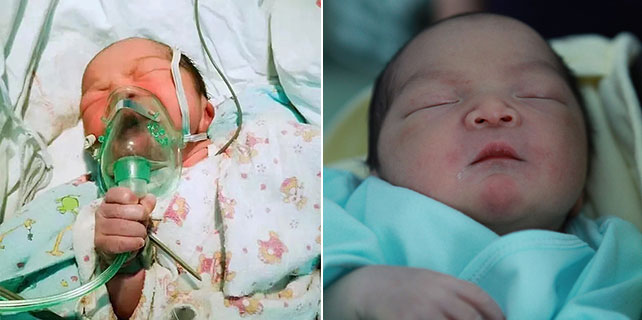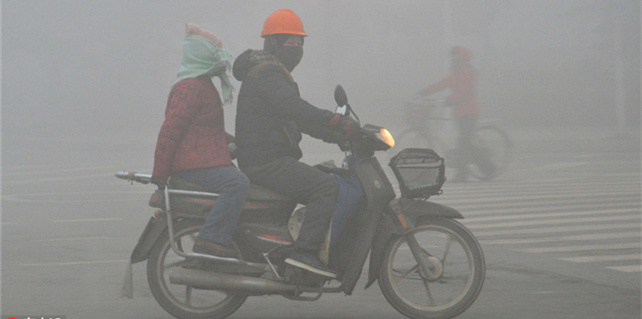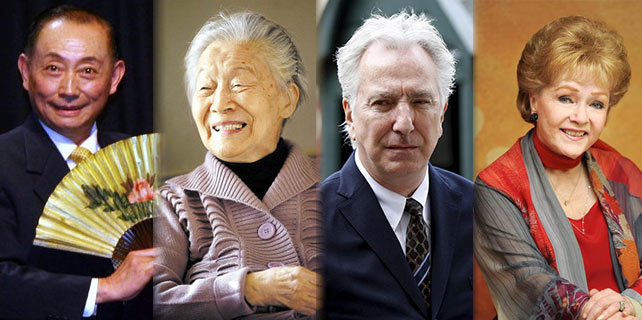How elections across the world may affect the global picture
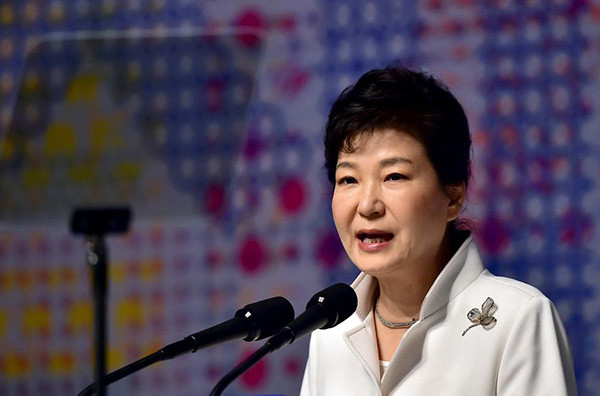 |
|
South Korean President Park Geun-hye delivers a speech during a ceremony to mark the anniversary of the 1919 independence movement against Japanese rule over the Korean peninsula, in Seoul March 1, 2016. [Photo/Agencies] |
Of the many elections that will be held across the world this year, a possible presidential poll in the Republic of Korea could have the biggest impact on China, according to observers.
The ROK President Park Geun-hye has been impeached after a scandal in which Choi Soon-sil, Park's friend and informal adviser, was accused of influence-peddling and using her connections with Park to pressure businesses into paying millions of dollars to foundations that support her initiatives.
"If the Constitutional Court finds President Park guilty, then there would be an early presidential election, probably between April and June 2017", said Yongwook Ryu, a visiting professor at the Graduate School of International Studies at Yonsei University in Seoul.
If an opposition party wins the election, important changes could be forthcoming in the country's foreign policy, he added.
For instance, Moon Jae-in, a former leader of the opposition Minjoo Party of Korea and a major presidential contender, has publicly declared that if elected he would scrap THAAD (the Terminal High Altitude Area Defense system) and Seoul's agreements with Tokyo on 'comfort women'-women used as sexual slaves by Japanese troops during World War II-and the GSOMIA (the General Security of Military Information Agreement).Moon has also intimated that he would restart a policy of engagement toward the Democratic People's Republic of Korea.
In July, Washington and Seoul announced that the ROK would deploy THAAD in response to the threats posed by Pyongyang's nuclear and conventional weapons. However, China vehemently opposes the system, whose radar would be able to monitor its missiles, and has vowed to take "necessary measures" in response.
In November, Japan and the ROK signed the General Security of Military Information Agreement, under which the two countries will share defense secrets.
The US believes the move will help the three sides to finally build a security triangle, but the ROK's opposition party said it will help Japan to become a major military power.
Another possible major contender is the former UN Secretary-General Ban Ki-moon, whose term of office ended on Saturday, who is said to be considering a presidential bid. If Ban were to stand and win, "we would very likely see the continuation of the previous policies on THAAD and cooperation with Tokyo", Ryu said.
According to a former Chinese ambassador to South Korea, who asked not to be named, despite the current political chaos, Seoul is speeding up the implementation of THAAD and is possibly looking to complete the process before May. "If so, it will pose a big challenge to relations between Beijing and Seoul. The situation in Northeast Asia will also be affected. We'll see whether the attempts of the US, South Korea and Japan to forge a military alliance in the region will be strengthened or weakened after the election," the person said.
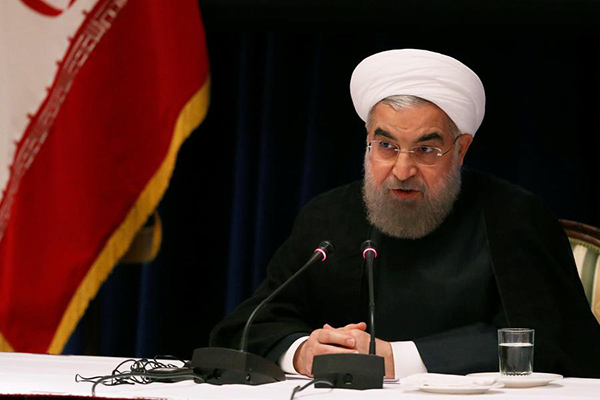 |
|
Iranian President Hassan Rouhani speaks at a news conference near the United Nations General Assembly in the Manhattan borough of New York, U.S., September 22, 2016. [Photo/Agencies] |
Close ties with Iran
Meanwhile, Iran, a country with which China maintains close ties, will hold a presidential election in May.
"Growing trade and diplomatic cooperation between Iran and China should continue if Iranian President Hassan Rouhani wins re-election. Trump's election and hard-line views toward Iran could be beneficial in enhancing China-Iran ties," said Jon R. Taylor, professor and chair of the department of political science at the University of St. Thomas in Houston, Texas.
Li Guofu, director of Middle East studies at the China Institute of International Studies in Beijing, believes that Sino-Iranian relations will not see big changes, irrespective of who wins the election.
"So far, both sides have shown a strong will to cooperate on the Belt and Road initiative, while relevant projects are proceeding swiftly," he said.
In Europe, France will have a presidential election in the spring, while Germany will hold a federal election in the fall. Both may prove beneficial to China, according to Taylor.
"There is a good chance that France will elect a more free-market leader in Francois Fillon. While he tends to be friendly toward Russia, this may also bode well for Chinese economic relations and FDI opportunities via the Belt and Road (initiative)," he said, adding that if Angela Merkel is reelected, the close trade and investment relations between China and Germany should continue.
"However, if far-right and/or nationalist candidates win, then all bets are off because we may see Trump-like anti-China policies arise (as well as a clampdown on both trade and immigration) and the potential breakup of the EU," he said.
Cui Hongjian, director of European studies at the China Institute of International Studies, said Europe as a whole is turning to the right in the face of economic and social problems.
"As a result, European countries will be more direct when seeking solutions to economic problems," he said.
Chen Weihua contributed to this story.








